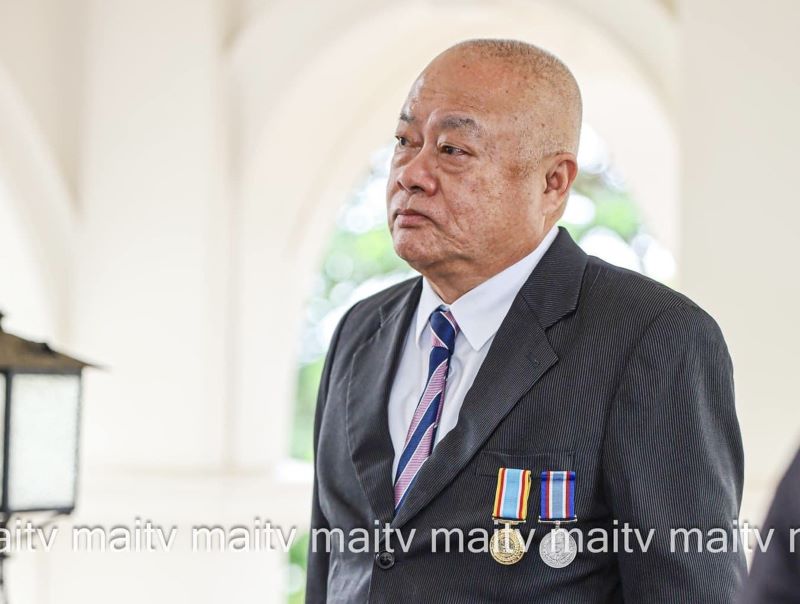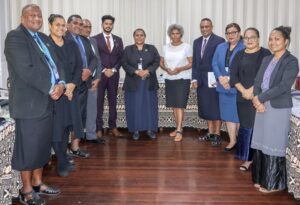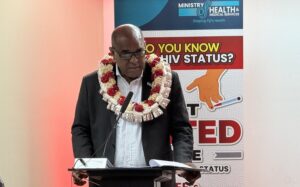In his maiden speech to Parliament this week, Fiji’s Attorney General Graham Leung called for ethical leadership and greater transparency in the Fijian government.
Stressing the importance of setting a positive example for the younger generation, Leung laid out his plans to introduce a Code of Conduct for leaders and to enforce the long-delayed Information Act.
“With great leadership comes great responsibilities. Who will lead us to a better Fiji? Who will set a great example for the younger generation to follow? The power is in your hands, our leaders,” Leung said, addressing the Parliament.
Code of Conduct for Leaders
A central focus of Leung’s address was the introduction of a Code of Conduct for leaders, which he described as a constitutional obligation that has been long overdue.
“A Code of Conduct forms an important part of the integrity system of government. It will encourage ethical conduct, reduce risks to the integrity of government, and the Parliament, as the paramount political institution, and enable it to perform its functions more effectively,” Leung said.
He committed to seeking Cabinet approval to draft the necessary legislation for early introduction to Parliament.
Enforcing the Information Act
Leung also underscored the need for transparency through the enforcement of the Information Act, passed in 2018 but not yet implemented.
“The delay in implementing the Information Act is unfortunate. It is my intention to go to Cabinet as soon as possible and seek its support to give effect to the law,” he said.
Leung underlined the importance of public access to government-held information, which he believes is vital for holding the government accountable and for enhancing citizens’ understanding of governmental decisions.
Challenges and Future Direction of Institutions and Commissions
Leung provided an overview of various institutions and commissions under his purview, highlighting both challenges and future directions:
Legal Aid Commission (LAC)
Leung acknowledged the role of the Legal Aid Commission in ensuring equal access to justice, especially for the poorest and most vulnerable.
However, he noted the increasing workload and budgetary constraints, suggesting a review of guidelines and means testing for legal aid.
“From its original intention of dealing with family law issues and representing accused in criminal matters, it is now drafting wills, dealing with estate matters from the public.
“While I recognise that this is about accessing justice, this has led to an expansion of legal aid services from its original purpose. It may be time to reconsider what the core service of the LAC should be.”
Human Rights & Anti-Discrimination Commission (HRADC)
Addressing the need for strengthened capacity, Leung stated his intention to support the HRADC in becoming an effective and credible national human rights institution.
“The commission presently has a staff of 12. It has a Complaints, Awareness and Promotion team with only 2-3 persons per team. This is not enough to handle complaints throughout Fiji. Between 2022 to April 2024, the complaints section received more than 800 complaints. I have already started discussions with the Director and others to explore how the capacity and staffing of the commission might be strengthened.
“It is my intention in the coming months to work closely with the FHRADC and to give it as much support as is needed to ensure that Fiji has a national human rights institution which is effective and credible.”
Fiji Independent Commission Against Corruption (FICAC)
Leung called for the restoration of a dedicated anti-corruption court to expedite FICAC’s backlog of cases, pointing out the need for strong leadership and timely justice to restore public trust in government.
FICAC has cases dating back to 2014 largely because “it was hard to get confirmed dates of hearing in court…and many FICAC cases were stuck in the long criminal lists awaiting their turn.”
“Corruption and poor governance are security challenges which undermine democracy, the rule of law and economic development. FICAC must carry out their duties fearlessly however difficult or inconvenient and go where the facts and the evidence take them.”
The institution, he added, “must never again be used as a weapon to remove or punish the government’s political opponents” calling the practise an abuse of power and unacceptable.
Law Reform Commission
Leung underscored the necessity of updating Fiji’s legal framework to keep pace with social, economic, and technological changes.
He highlighted the challenges posed by outdated laws and stressed the importance of clear and predictable legislation.
“Many of Fiji’s laws were inherited from when Fiji was a British colony. Many are outdated and often written in a language and style better suited to that era,” he said.
Leung suggested appointing part-time commissioners to address specific law reform issues and to work closely with the Law Reform Commission to prioritise urgent legislative needs.
Accountability and Transparency Commission
Leung also announced plans to establish an Accountability and Transparency Commission in a bid to enhance good governance,
“I strongly believe that setting up the Accountability and Transparency Commission is crucial and overdue. This will be a further step towards promoting good governance, reducing corruption, and building trust among our people,” he said.
Reviving Jury Assessors
Leung also called for the reinstatement of assessors in criminal trials, which were abolished in 2021.
He argued that the assessor system provided an important check and balance on judges sitting alone, enhancing fairness in criminal trials.
“I believe it introduced a greater element of fairness in criminal trials. In my view, the removal of assessors has resulted in an important safeguard and oversight in criminal trials being lost.”
In closing, Leung called for a renewed commitment to nationhood and unity among Fiji’s diverse communities.
He urged young people to lead the way in breaking down racial barriers and fostering a sense of common destiny.
“Our multi-ethnic fabric is a cause for celebration. We are richer for it. Irrespective of race or religion, our diverse communities have many shared values, including a strong commitment to family, children and the aged.”









